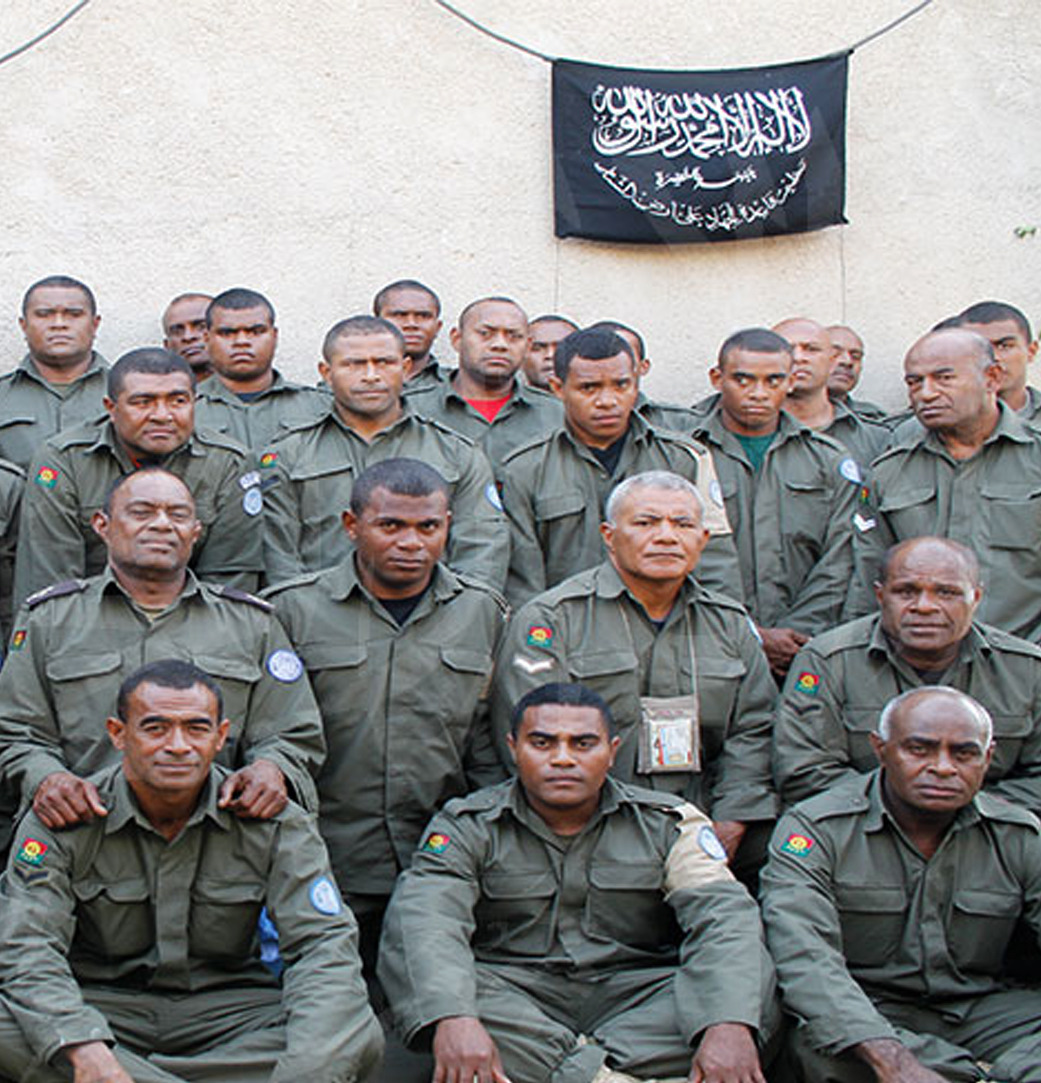
Tiny Fiji’s outsized UN role controversial in light of peacekeepers’ captivity
For years, Fiji’s tiny military force has carried out two high-profile tasks: leading coups and peacekeeping. It’s a mix that has drawn questions—now more than ever, with 45 Fijian troops captured by Syrian insurgents. The force of just 3,500 is devoted largely to peacekeeping around the world, but lacks the sophisticated hardware other militaries rely on to keep their troops safe. The troops have not trained with their Australian, New Zealand and American counterparts since 2006, when the military took control of this relaxed South Pacific nation of 900,000. Fiji wasn’t even sure at first how many of its troops were captured last week in the Golan Heights, where they were part of a UN force that has monitored the buffer zone between Syria and Israel for four decades.
They decided to go in June last year, and by August they were in … It was quite hasty. I knew they didn’t have the logistics and training for such a deployment, or for the escalating violence in Syria.
Jone Baledrokadroka, Fiji’s former land forces commander
The UN announced that 43 were taken. Fiji later said it was 44. By Monday, Fiji had raised the number to 45. Jone Baledrokadroka, Fiji’s former land forces commander who is now a visiting fellow at the Australian National University in Canberra, said the Golan Heights deployment appeared rushed. Fijians this week have been holding candlelight vigils for their troops, who have been held by the al-Qaida-linked Nusra Front in an unknown location since Aug. 28. The UN says it’s negotiating with the insurgents, who have made several demands for releasing the Fijians, including being taken off the UN terrorist list. Fiji has long taken on an outsized role in the world’s peacekeeping duties, even as it has been roiled by several domestic coups. The military promises it will finally hold democratic elections this month.
It’s very hard to see how they can justify using military people who have overthrown the rule of law in their own country as the agents to enforce the rule of law as peacekeepers somewhere else.
Murray McCully, New Zealand’s foreign minister

World Fiji peacekeepers